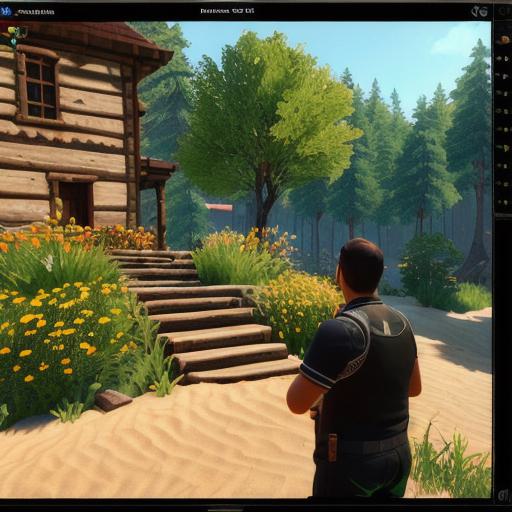Introduction
As a unity developer, you may have recently taken Coursera’s
Introduction
to C Programming and Unity course. However, despite your best efforts, you might still be struggling with some of the concepts covered in the course. In this article, we will provide you with solutions to common problems faced by students taking this course, so that you can improve your understanding and get the most out of it.

Challenge 1: Understanding C Syntax
One of the main challenges for many students taking Coursera’s
Introduction
to C Programming and Unity course is understanding the syntax of the language. C has a unique set of rules that can be difficult for developers who are used to other programming languages. However, there are several ways to overcome this challenge.
Firstly, it is important to take the time to review the basics of C syntax. This includes understanding the different data types, keywords, operators, and control structures. You can find many online resources that provide a comprehensive overview of C syntax, such as Microsoft’s official documentation and various tutorials on websites like Udemy and Coursera.
Secondly, it is helpful to practice writing simple C programs. By starting with simple programs and gradually working your way up to more complex ones, you can get a feel for the language and its syntax. You can find many online resources that provide code examples and tutorials on how to write simple C programs.
Challenge 2: Understanding Unity Concepts

Another common challenge faced by students taking Coursera’s
Introduction
to C Programming and Unity course is understanding the concepts of Unity. While Unity is a powerful game engine, it has its own unique set of features and tools that can be difficult for developers who are new to the platform. However, there are several ways to overcome this challenge.
Firstly, it is important to familiarize yourself with the basics of Unity. This includes understanding the different components, such as game objects, scripts, and assets. You can find many online resources that provide a comprehensive overview of Unity’s features and tools, such as Unity’s official documentation and various tutorials on websites like Udemy and Coursera.
Secondly, it is helpful to practice creating simple Unity projects. By starting with simple projects and gradually working your way up to more complex ones, you can get a feel for how Unity works and its concepts. You can find many online resources that provide code examples and tutorials on how to create simple Unity projects.
Challenge 3: Debugging C Code
Debugging C code is another common challenge faced by students taking Coursera’s
Introduction
to C Programming and Unity course. While there are many debugging tools available for C, it can be difficult to know where to start when you encounter an error in your code. However, there are several ways to overcome this challenge.
Firstly, it is important to read and understand the error messages that are generated by the compiler. Error messages provide valuable information about the specific problem with your code, and can help you identify the root cause of the issue. You can find many online resources that provide a comprehensive overview of C’s error messages and how to interpret them.
Secondly, it is helpful to use debugging tools such as Visual Studio’s debugger and Unity’s built-in console. These tools allow you to step through your code line by line and inspect the values of variables at different points in execution. You can find many online resources that provide tutorials on how to use these tools effectively.
Challenge 4: Performance Optimization

Performance optimization is an important aspect of developing games and applications with Unity. While Unity’s built-in profiling tools are helpful, they may not be sufficient for more advanced performance tuning. However, there are several ways to optimize your Unity projects for better performance.
Firstly, it is important to use efficient data structures and algorithms when writing code. This includes using arrays instead of lists whenever possible, and avoiding unnecessary loops and recursion. You can find many online resources that provide a comprehensive overview of efficient data structures and algorithms, such as Coursera’s Algorithms Specialization.
Secondly, it is helpful to optimize your game objects and assets for better performance.



